Filter by
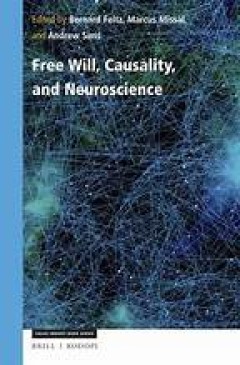
Free Will, Causality, and Neuroscience
Neuroscientists often consider free will to be an illusion. Contrary to this hypothesis, the contributions to this volume show that recent developments in neuroscience can also support the existence of free will. Firstly, the possibility of intentional consciousness is studied. Secondly, Libet’s experiments are discussed from this new perspective. Thirdly, the relationship between free will, …
- Edition
- -
- ISBN/ISSN
- 978-90-04-40996-5
- Collation
- oer.unej.ac.id
- Series Title
- Value Inquiry Book Series, Volume: 338 Value Inquiry Book Series Online, Volume: 338 Cognitive Science, Volume: 338
- Call Number
- -

Elbow room :the varieties of free will worth wanting
"A Bradford Book.""In this landmark 1984 work on free will, Daniel Dennett makes a case for compatibilism. His aim, as he writes in the preface to this new edition, was a cleanup job, 'saving everything that mattered about the everyday concept of free will, while jettisoning the impediments.' In Elbow Room, Dennett argues that the varieties of free will worth wanting--those that underwrite mora…
- Edition
- New edition.
- ISBN/ISSN
- 9780262332026
- Collation
- 1 online resource (xiv, 227 pages)
- Series Title
- -
- Call Number
- -
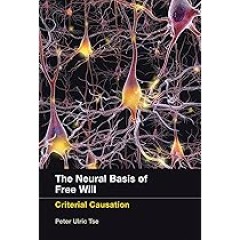
The Neural Basis of Free Will: Criterial Causation
The issues of mental causation, consciousness, and free will have vexed philosophers since Plato. In this book, Peter Tse examines these unresolved issues from a neuroscientific perspective.OCLC-licensed vendor bibliographic record.
- Edition
- -
- ISBN/ISSN
- 9780262313155
- Collation
- 1 online resource (xii, 456 pages) :illustrations
- Series Title
- -
- Call Number
- -

Freedom and Determinism
"A Bradford book."This collection of contemporary essays by prominent contemporary thinkers on the topics of determinism and free agency concentrates primarily on two areas: the compatibility problem and the metaphysics of moral responsibility. There are also essays on the related fields of determinism and action theory. The book is unique in that it contains up-to-date summaries of the life-wo…
- Edition
- -
- ISBN/ISSN
- 9780262269773
- Collation
- 1 online resource (vi, 329 pages) :illustrations.
- Series Title
- -
- Call Number
- -
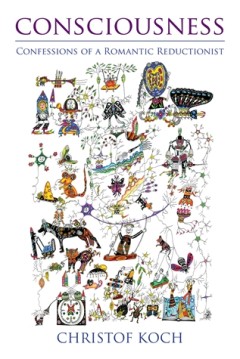
Consciousness :confessions of a romantic reductionist
"What links conscious experience of pain, joy, color, and smell to bioelectrical activity in the brain? How can anything physical give rise to nonphysical, subjective, conscious states? Christof Koch has devoted much of his career to bridging the seemingly unbridgeable gap between the physics of the brain and phenomenal experience. This engaging book--part scientific overview, part memoir, part…
- Edition
- -
- ISBN/ISSN
- 9780262301787
- Collation
- 1 online resource (xii, 181 pages)
- Series Title
- -
- Call Number
- -
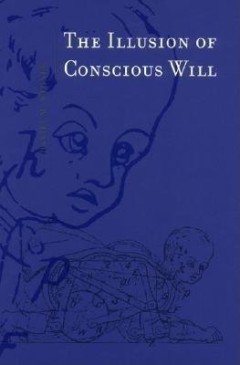
The illusion of conscious will
"A Bradford book."A novel contribution to the age-old debate about free will versus determinism.Do we consciously cause our actions, or do they happen to us? Philosophers, psychologists, neuroscientists, theologians, and lawyers have long debated the existence of free will versus determinism. In this book Daniel Wegner offers a novel understanding of the issue. Like actions, he argues, the feel…
- Edition
- -
- ISBN/ISSN
- 9780262285896
- Collation
- 1 online resource (xi, 405 pages) : illustrations
- Series Title
- -
- Call Number
- 100 WEG i

Free will as an open scientific problem
"A Bradford book."This work presents an argument that the problem of free will boils down to an open scientific question about the causal histories of certain kinds of neural events.OCLC-licensed vendor bibliographic record.
- Edition
- -
- ISBN/ISSN
- 9780262258548
- Collation
- 1 online resource (viii, 202 pages)
- Series Title
- -
- Call Number
- -
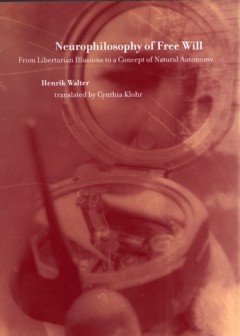
Neurophilosophy of free will :from libertarian illusions to a concept of natu…
"A Bradford book."Walter applies the methodology of neurophilosophy to one of philosophy's central challenges, the notion of free will. Neurophilosophical conclusions are based on, and consistent with, scientific knowledge about the brain and its functioning.Neuroscientists routinely investigate such classical philosophical topics as consciousness, thought, language, meaning, aesthetics, and de…
- Edition
- -
- ISBN/ISSN
- 9780262285759
- Collation
- 1 online resource (xiii, 391 pages)
- Series Title
- -
- Call Number
- -
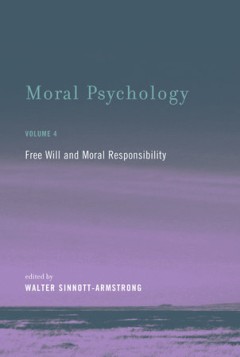
Moral psychology.
"A Bradford book."Traditional philosophers approached the issues of free will and moral responsibility through conceptual analysis that seldom incorporated findings from empirical science. In recent decades, however, striking developments in psychology and neuroscience have captured the attention of many moral philosophers. This volume of Moral Psychology offers essays, commentaries, and replie…
- Edition
- -
- ISBN/ISSN
- 9780262321488
- Collation
- 1 online resource
- Series Title
- -
- Call Number
- -
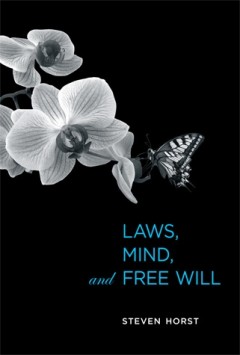
Laws, Mind, and Free Will
In this work, Steven Horst addresses the apparent dissonance between the picture of the natural world that arises from the sciences and our understanding of ourselves as agents who think and act.OCLC-licensed vendor bibliographic record.
- Edition
- -
- ISBN/ISSN
- 9780262295741
- Collation
- 1 online resource (xiii, 277 pages) :illustrations, map.
- Series Title
- -
- Call Number
- -
 Computer Science, Information & General Works
Computer Science, Information & General Works  Philosophy & Psychology
Philosophy & Psychology  Religion
Religion  Social Sciences
Social Sciences  Language
Language  Pure Science
Pure Science  Applied Sciences
Applied Sciences  Art & Recreation
Art & Recreation  Literature
Literature  History & Geography
History & Geography